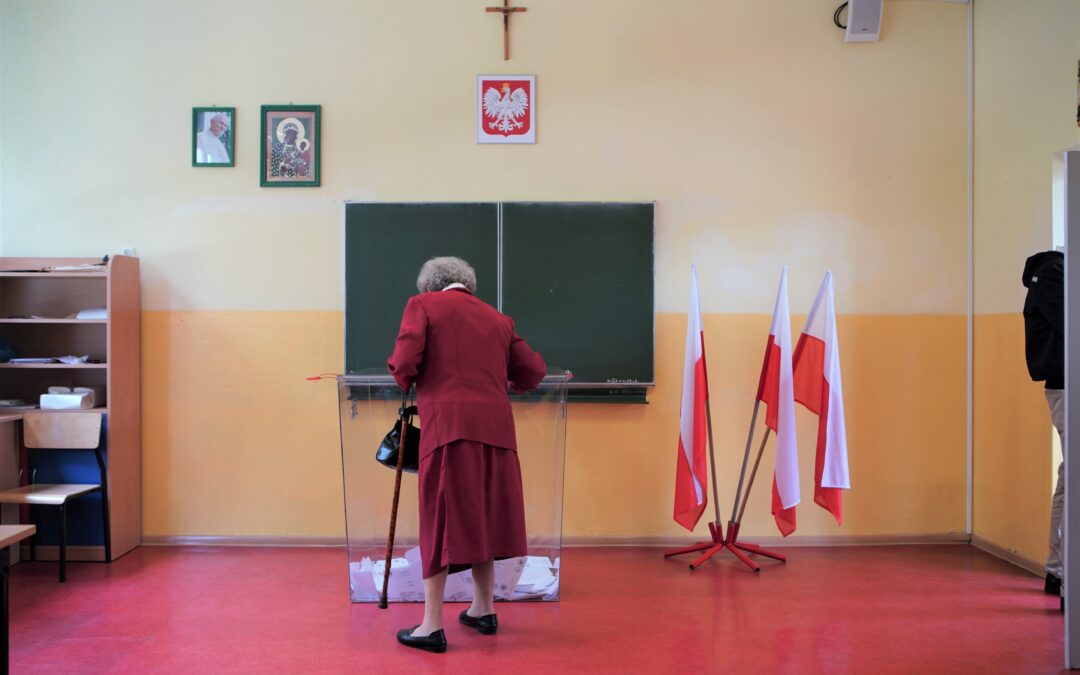Just under half of Poles fear that this autumn’s parliamentary elections may be rigged, a new poll has found. The results show that such concerns are high among opposition supporters but low among those who back the government.
“Do you fear that parliamentary elections due to take place in the autumn could be falsified?” asked United Surveys in a poll for the Dziennik Gazeta Prawna newspaper and broadcaster RMF FM.
Overall, 47.3% said they were concerned, including 28% who were very worried. A slightly higher proportion, 48.3%, said they were not concerned.
Jesienne wybory mogą zostać sfałszowane? SONDAŻ DLA DGP I RMF FM https://t.co/M4ZdrqAmJe
— Dziennik.pl (@DziennikPL) January 12, 2023
Among those who intend to vote for the national-conservative ruling coalition, only 16% are concerned. Among those who favour the opposition, 65% are worried. And among undecided voters, as many as 72% said they feared the elections could be rigged, including 50% who were very concerned.
Women (59%) were much more likely to be concerned than men (34%). When it comes to age, the highest concern was recorded among the youngest (18 to 29 years) and oldest (60-69 and 70+) groups, while the lowest was expressed by those aged 40-49 and 50-59.
The results also highlighted the partisan nature of Poland’s main TV networks. Only 27% of those who watch the news on state broadcaster TVP, which is a government mouthpiece, expressed concern about the elections compared to 65% of those who watch it on TVN, a private station often critical of the government.
Both Poland’s ruling coalition and the opposition have raised concerns about whether this year’s elections will be conducted fairly.
“After previous campaigns, in which it was difficult to talk about fair elections, people are afraid that PiS [the national-conservative ruling party] will be so afraid to give up power that it will try to falsify the elections,” said Borys Budka, head of the parliamentary caucus of the centrist Civic Coalition (KO), the largest opposition group.
PiS chairman Jarosław Kaczyński – Poland’s de facto leader – warned in September that the opposition would try to disrupt and dispute the vote. He therefore announced the creation of an “army” to protect the elections and plans for new vote-counting rules.
Just before Christmas, his party submitted proposed amendments to the electoral code that would, among other things, increase the number of polling stations, change the way that votes are counted, and provide free transport to polling stations for people aged over 60.
PiS argues that changes are needed to make the electoral process more democratic. But the opposition says the aim is to boost turnout among groups traditionally supportive of the ruling party, which is more popular in rural areas and among older voters.
After both the 2019 parliamentary elections and 2020 presidential elections in Poland, OSCE observers published reports concluding that voting was prepared and administered well.
However, in both cases, they also added that the campaigns were marred by intolerant and biased rhetoric from public media, which “acted as a campaign vehicle for the incumbent” with a “lack of impartiality…[that] undermined voters’ ability to make an informed choice…[and] amplified the advantage of the ruling party”.
In 2020, amid the pandemic, the government attempted to hold the presidential election exclusively by postal voting. However, those plans were abandoned and court rulings later found that senior officials – including the prime minister – had violated the law in trying to implement them.
Main image credit: Grzegorz Skowronek / Agencja Wyborcza.pl

Daniel Tilles is editor-in-chief of Notes from Poland. He has written on Polish affairs for a wide range of publications, including Foreign Policy, POLITICO Europe, EUobserver and Dziennik Gazeta Prawna.




















